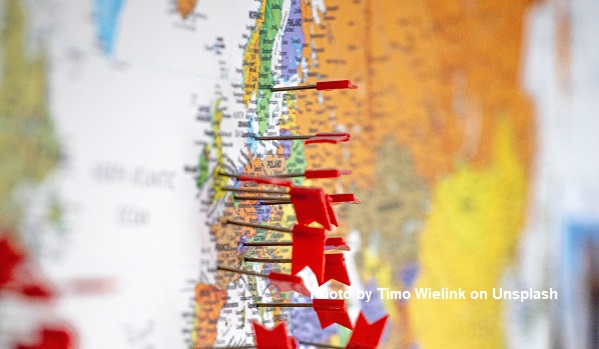The European Commission has published a strategy on voluntary return and reintegration. The aim of the strategy is to promote voluntary return and reintegration and to develop a more coherent and coordinated approach among Member States. “Voluntary return is far preferable to forced return. So in that sense, the strategy is welcome. Nonetheless, it is launched in a context where there is a disproportionate focus on return as part of asylum and migration policy, and the strategy continues that approach,” ECRE director Catherine Woollard said.
The strategy references legal changes that the European Commission considers to be supportive of voluntary return, such as the adoption of the recast Return Directive. It also mentions the proposals included in the Pact on Migration and Asylum, such as the return border procedure and return sponsorship. According to Woollard, there are fundamental structural issues to be addressed in relation to return: “People seeking asylum in Europe face what we call the asylum lottery, where decision making diverges hugely from one member state to another. And this tells us that there are people with protection needs who receive negative decisions, who receive rejections. And we know that European member states are returning people to countries that are not safe.”
Among the challenges highlighted is the insufficient collection of data which means that there is no overview of how many people have been subject to voluntary or forced return as Member States are not obliged to report on this or the type of assistance provided to returnees. This should improve through the application of the revised Migration Statistics Regulation.
The strategy reiterates Frontex’ reinforced mandate in returns and underlines its role as “operational arm of the common EU system of returns”. As part of this, Frontex will take over activities of the European Return and Reintegration Network to operationalise Frontex’ mandate on assisted voluntary return and reintegration. A Deputy Executive Director on Return will lead the agency’s work to assist Member States in all phases of the return process. The expansion of Frontex’ mandate in returns has raised concerns: “It’s very risky to give additional roles to Frontex, particularly in third countries where Frontex operations tend to be quite opaque and where there is a risk that Frontex runs a sort of parallel foreign policy,” stated.
To increase coherence among practice in EU Member States, the strategy foresees a common curriculum for return counsellors which should also support the application of the EU framework on return counselling. In addition, the differences between Member States’ reintegration programmes should be addressed through the development of tools that facilitate information exchange.
The strategy highlights the EU’s readiness to continue supporting voluntary return and reintegration from third countries to third countries and mentions possible partnerships at regional or multilateral level in support of this. The aim to support ownership of third countries for voluntary return is mentioned as well. To this effect, the strategy proposes to mobilise civil society and private sector and supporting government structures to avoid parallel systems on reintegration in third countries.
It is estimated that 75% of the costs related to Member States voluntary return programmes are covered by EU funds. The objectives of this strategy will influence the allocation of EU funding, both from EU internal and external funds.
For further information:
- ECRE, Policy Note: Voluntary Departure and Return: Between a Rock and a Hard Place, August 2018
- ECRE, Policy Note: Return: No Safety in Numbers, November 2017
Photo by Timo Wielink on Unsplash
This article appeared in the ECRE Weekly Bulletin. You can subscribe to the Weekly Bulletin here.

